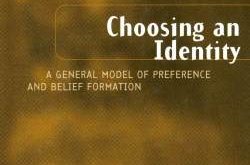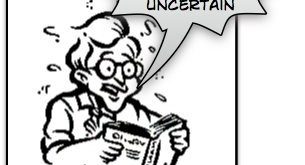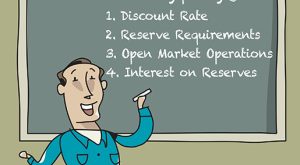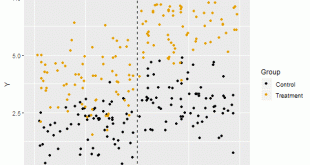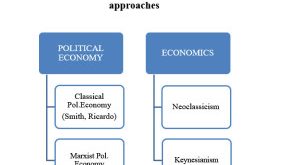It can be said without great controversy that no other theoretical approach in this century has ever enjoyed the same level of ubiquity throughout the social sciences as the rational choice approach enjoys today. Despite this ubiquity, the success of the approach has been very tenuous. Its advance has been accompanied by an intense debate over its relative merit. The approach has been subject to the usual criticism of blatant inaccuracy given by outsiders to any would-be...
Read More »Hyman Minsky at 100
Hyman Minsky at 100 On the occasion of the 100th anniversary of the birth of Hyman Minsky (1919-1996) I recommend every one to listen to BBC 4 where Duncan Weldon tries to explain in what way Hyman Minsky’s thoughts on banking and finance offer a radical challenge to mainstream economic theory. As a young research stipendiate in the U.S. yours truly had the great pleasure and privilege of having Hyman Minsky as a teacher. He was a great inspiration at the...
Read More »Nobel prize winner Thomas Sargent talking absolute unadulterated horse shit
Nobel prize winner Thomas Sargent talking absolute unadulterated horse shit [embedded content] I especially love the way this Nobel laureate “explains” rational expectations: There are so many people out there, and it is so difficult to know how each one of them thinks about the future. So let’s just assume they think the same. Problem solved. And that absolute nonsense reasoning rendered this guy a ‘Nobel prize’ in economics! The tiny little problem that...
Read More »Alternatives Economiques
Sous pression depuis des années déjà, l’enseignement des SES est repris en main par l’académisme néoclassique. Utilisé comme outil pédagogique par certains enseignants, Alternatives Economiques s’est retrouvé associé aux critiques de la droite et du patronat à l’encontre de cette matière. Alternatives Economiques est né en 1980. Le magazine tire son nom de l’interpellation de Margaret Thatcher, arrivée au pouvoir en 1979 au Royaume-Uni, qui avait l’habitude de défendre sa...
Read More »La Fed e il controllo della politica monetaria
La Fed e il controllo della politica monetaria Alla Casa Bianca non è piaciuta la decisione della Federal Reserve di tagliare soltanto di un quarto di punto il tasso di riferimento. Ma l’attacco furioso via Twitter cela il fatto che a Donald Trump sia piaciuto ancor meno il modo in cui Jay Powell, in conferenza stampa, ha spiegato la decisione. È un rimedio, ha detto il presidente della Fed, all’incertezza prodotta dalla politica commerciale, in particolare...
Read More »Ist Libra besser als Euro und Dollar?
Ist Libra besser als Euro und Dollar? Notenbanker und Finanzminister sind nicht glücklich über die Ankündigung mehrerer Firmen, darunter Facebook, PayPal und Mastercard, eine eigene elektronische Währung namens Libra schaffen zu wollen … Das ist wenig überraschend, denn Libra ist nichts anderes als ein Angriff auf das Währungsmonopol des Staates … Am Montag wurden die Libra-Macher deshalb einbestellt: zum Treffen in der so verschwiegenen wie mächtigen Bank...
Read More »IPA’s weekly links
Guest post by Jeff Mosenkis of Innovations for Poverty Action The animation above comes from a cool page of causal inference animations by Nick Huntington-Klein (h/t Alex Tabarrok), which go through, step-by-step with scatterplots, how different methods work. Alex was one of many who offered helpful tips for getting through undergrad econometrics. Call for papers for the Y-Rise conference Dec 15-21 on the science of scaling promising interventions. They have research networks looking at...
Read More »‘Economic Crisis and the crisis of Economics: Political Economy as a realistic and credible alternative’ – video lecture by S.Mavroudeas
I have been invited by the ISEPA’19 conference (organised by the Dicle University) to speak atheir conference. Since I could not make it due to other obligations I was asked for a video lecture. Its subject is ‘Economic Crisis and the crisis of Economics: Political Economy as a realistic and credible alternative’ Nikos Zappas did an excellent job in recording and editing the video. The link for watching the video is below: [embedded content] The abstract of the lecture is the...
Read More »Black Rock — The Wall Street Monster
Black Rock — The Wall Street Monster [embedded content]
Read More »Nordhaus dangerous gamble for humanity’s future
Nordhaus dangerous gamble for humanity’s future Nordhaus’s transgressions are immense. His ‘damage function’ which he uses to estimate global warming damage is incorrect and uses data that has nothing to do with climate change. Despite this, the Intergovernmental Panel on Climate Change (IPCC) uses his model to advise governments about the economic impact of global warming. Nordhaus and other mainstream climate economists certainly have a lot to answer for....
Read More » Heterodox
Heterodox

